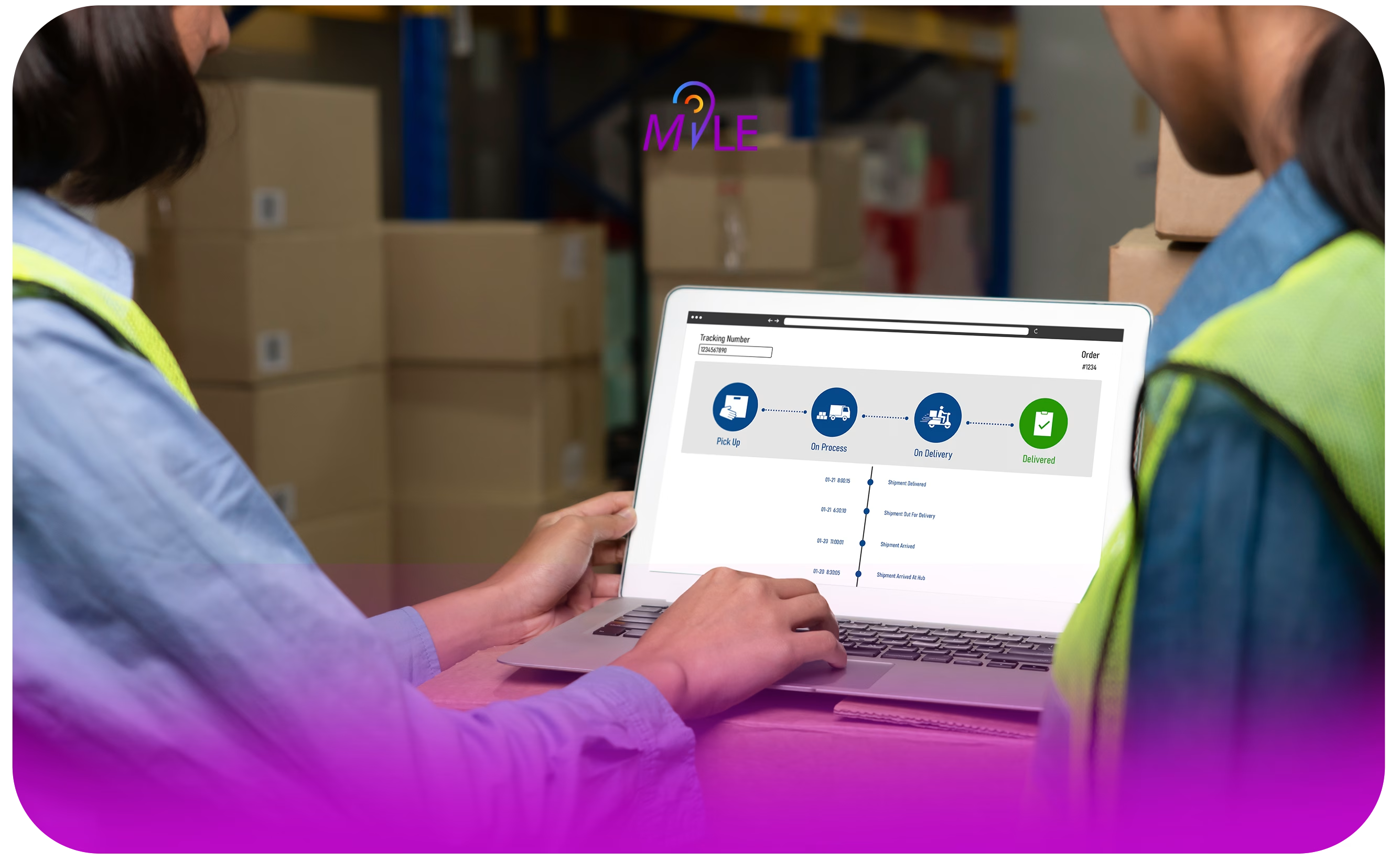Courier Management Software 101: A Comprehensive Guide
If you’ve ever handled deliveries, you know how tricky logistics can get. Orders pile up, drivers run late, and customers flood your inbox with tracking requests. A courier management software reduces operational friction by consolidating all relevant processes on one powerful platform.
With this system, all your delivery operations come together in one place. You can manage orders, assign deliveries, and track shipments in real time. No more jumping between spreadsheets and phone calls!
A good courier management software makes deliveries smoother, faster, and more predictable. You don’t have to guess where a package is or keep calling the drivers for updates. You can retrieve all the information you need for a particular order on a centralized dashboard.
Who Uses a Courier Management System?
Whether managing food deliveries, medical shipments, or retail logistics, many businesses depend on courier management software.
eCommerce and Retail Businesses
Fast and reliable delivery keeps customers coming back, especially in eCommerce. A courier management software helps streamline logistics, no matter if you handle deliveries in-house or outsource them to third-party logistics providers.
Same-day courier delivery businesses also need a robust system to keep their operations running smoothly. Even specialized services like flower delivery Abu Dhabi UAE depend on accurate order tracking and optimized routes to ensure fresh and timely deliveries.
Last-minute orders, high delivery volumes, and unexpected delays can disrupt schedules and impact customer satisfaction.
A courier management software helps maintain control over every step, from inventory updates to final drop-offs. Orders get processed faster, tracking updates are correct, and customers receive real-time delivery notifications when their shipment is out with courier for delivery DHL or any other service.
Third-Party Logistics Providers
When working with one client, logistics management is simpler since order processing, warehouse management, and delivery timelines follow a single set of guidelines. But in a 3PL business, managing multiple clients means dealing with overlapping delivery windows, diverse product categories, and complex fulfillment strategies.
A courier management software gives you the operational agility to adapt to different workflows and handle shipments for different businesses without getting tangled in separate tracking systems.
You can set up dedicated dashboards for each client, automate bulk order processing, and streamline communication. This lowers the risk of errors and prevents unwanted disruptions.
Healthcare and Pharmaceutical Couriers
Delivering medical supplies, prescriptions, and lab samples demands accuracy and speed. Delays in healthcare are more than an inconvenience — they can put patient safety at risk.
A medical courier delivery app helps couriers track time-sensitive shipments, navigate the fastest routes, and comply with strict healthcare regulations.
Furthermore, a medical courier delivery driver must handle temperature-sensitive shipments like vaccines and blood samples with extra care. Real-time tracking is essential, as even slight temperature fluctuations can lead to spoilage. A courier management system integrates with monitoring devices that provide instant updates on temperature, handling conditions, and location. This level of oversight guarantees that critical medical deliveries remain safe and effective for patient use.
Core Components of a Courier Management Platform
Staying ahead in the increasingly competitive courier industry requires smart, automated solutions. Below are the key features of a courier delivery management software that can help your business grow at scale.
Order Management & Automation
Taking delivery orders manually leaves too much room for mistakes. Misspelled addresses, incorrect delivery times, and misplaced requests can cause unnecessary delays. A courier management software fixes this by digitizing the entire order booking process. Customers enter their details through an app or website, and you see everything in one place.
Once orders are in the system, automation takes over. Instead of sorting requests by hand, the platform organizes them based on location, urgency, or type of service. Assigning deliveries becomes faster, and orders move through the pipeline steadily from start to finish.
Scheduling also gets easier. The system can arrange pickup times, send reminders, and adjust schedules based on demand. You don’t have to micromanage every step. The courier management platform automates routine tasks, so that things run seamlessly with minimal manual intervention.
Dispatch & Route Optimization
If drivers take inefficient routes, deliveries slow down, and fuel costs rise. A courier management software eliminates guesswork by mapping out the best routes for every order. AI-powered planning considers distance, road conditions, and order volume to pick the quickest path.
Sometimes, traffic also throws a wrench into even the best-laid plans. A good courier delivery management system adjusts routes based on real-time congestion reports. Drivers avoid high-traffic areas, follow the most direct path to their destinations, and reach their stops on time.
Occasionally, weather is also to blame for late deliveries. Storms, heavy rain, or extreme heat can impact delivery schedules. The courier delivery software factors in these conditions and reroutes deliveries to keep things moving as per plan. Customers get their packages on time, and drivers avoid risky roads.
Real-Time Tracking & Updates
Customers hate uncertainty. If they order something, they want to know exactly when it will arrive. Live GPS tracking sorts that out. Now customers can check their order status in real time, rather than calling customer support and asking for updates every few minutes.
Automated notifications too, are a good way to keep customers in the loop. The software triggers SMS or email alerts when a package is dispatched or running late.
Real-time tracking also helps you spot potential delays and reroute an order immediately.
Fleet Management & Driver Monitoring
Managing drivers is just as important as tracking deliveries. If you have an in-house fleet, staying on top of vehicle maintenance, fuel consumption, and driver schedules can get complicated. A courier management software organizes everything in one place, so you don’t lose track of key details.
Driver analytics help measure performance on a granular level. The system tracks delivery times, routes taken, and any delays. If someone consistently runs late or takes inefficient routes, you can address the issue promptly.
Third-party couriers also need supervision. If you work with external drivers, the platform makes sure they follow company guidelines. Whether they’re part of your team or an outsourced service, performance tracking helps uphold high standards across the fleet.
Billing & Payment Integration
Collecting payments manually slows everything down. A courier management software streamlines the process by offering online transactions, automated invoices, and detailed billing records. Customers can pay through credit cards, mobile wallets, or bank transfers within a few clicks.
Cash-on-delivery orders bring their own set of challenges. Tracking payments from multiple drivers can lead to mix-ups. The electronic proof of delivery logs every transaction, so you have the complete trail of exactly how much cash a driver has on him at a given point in time. Some courier delivery management softwares, like Mile, also set hard limits and force the delivery staff to deposit their receivables at the depot before they can move to the next delivery.
International deliveries need careful handling. Currency differences, taxes, and cross-border fees can cause confusion if not managed properly. A courier management software calculates costs automatically and adjusts invoices based on regional pricing. That keeps financial records accurate and spares you countless hours of manual work.
Third-Party Software Integrations
Seamless integrations strengthen your eCommerce operations. Shopify and WooCommerce connect directly with courier management systems, so you no longer waste time on manual data entry. As a result, orders move from checkout to shipment faster, and customers receive their orders right on time.
3PL integrations help expand your delivery coverage. Multiple courier options give your business more flexibility, and customers get a wider range of shipping choices. Consequently, they can select the speed and cost that best fit their needs.
Automation also makes fulfillment even more efficient. Orders transfer instantly from your online store to shipping providers, so processing time decreases, and errors become less frequent. Moreover, label creation, dispatching, and tracking updates happen automatically, which keeps deliveries on schedule.
Conclusion
Technology continues to reshape logistics. AI, automation, and sustainable practices will play a bigger role in the future. Businesses that adapt to these changes stay competitive in an evolving market.
Investing in a courier management software will make deliveries faster, more accurate, and less stressful.
Looking to hire courier delivery app development services? Book a discovery call with Mile today!

